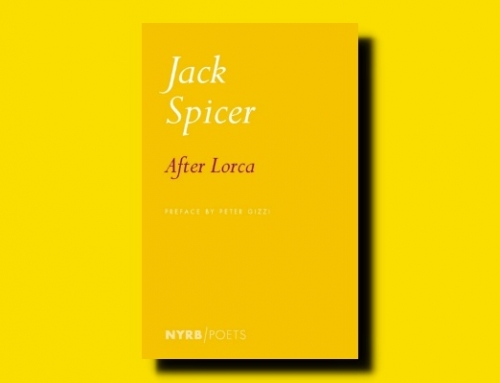
Mary McCarthy: The Complete Fiction
–McCarthy: Novels & Stories 1942 – 1963
–McCarthy: Novels 1963 – 1979
The Library of America (2017)
 If you have never read Mary McCarthy’s fiction before, then I think the best way to get to know her is the same way I did: open her first book, The Company She Keeps, and just start reading. I first had occasion to do this only a few weeks ago when The Library of America’s new set of McCarthy’s complete fiction arrived, and this is the astonishing work I beheld:
If you have never read Mary McCarthy’s fiction before, then I think the best way to get to know her is the same way I did: open her first book, The Company She Keeps, and just start reading. I first had occasion to do this only a few weeks ago when The Library of America’s new set of McCarthy’s complete fiction arrived, and this is the astonishing work I beheld:
She could not bear to hurt her husband. She impressed this on the Young Man, on her confidantes, and finally on her husband himself. The thought of Telling Him actually made her heart turn over in a sudden and sickening way, she said. This was true, and yet she knew that being a potential divorcee was deeply pleasurable in somewhat the same way that being an engaged girl had been. In both cases, there was at first a subterranean courtship, who significance it was necessary to conceal from outside observers. The concealment of the original, premarital courtship had, however, been a mere superstitious gesture, briefly sustained. It had also been, on the whole, a private secretiveness, not a partnership of silence. One put one’s family and one’s friend off the track because one was still afraid that the affair might not come out right, might not lead in a clean, direct line to the altar. To confess one’s aspirations might be, in the end, to publicize one’s failure. Once a solid understanding had been reached, there followed a short intermission of ritual bashfulness, in which both parties awkwardly participated, and then came the Announcement.
But with extramarital courtship, the deception was prolonged where it had been ephemeral, necessary where it had been frivolous, conspiratorial where it had been lonely. It was, in short, serious where it had been dilettantish.
How is it that I’ve gone so long not only without having read McCarthy, but also having never really heard of McCarthy?
Each volume contains a Chronology, put together by the series editor Thomas Mallon. Since McCarthy’s life seems as fascinating as her work, let’s briefly start there. McCarthy was born in June 1912 in Seattle, Washington. Not many years after her birth, McCarthy’s family was moving back to Minneapolis, Minnesota, closer to her father’s family. But on the three day train journey, the entire family caught the Spanish flu in the 1918 epidemic, which took both of her parents, her father one day, and her mother the next. McCarthy and her two younger brothers, now orphaned were taken in by her father’s family, much to the detriment of the children, who were finally rescued from the neglectful and abusive situation in 1923 by their maternal grandparents. Whisked back to Seattle, McCarthy is given a more liberated upbringing than many might expect from a 1920s family. But, despite running away from school for the fun of it a few times, she wanted to attend Vassar, taken by the desire to be a writer from the time she is an adolescent. She achieved her goal and in 1933 graduated cum laude from Vassar. Just under a decade later, one divorce under her belt and halfway through her marriage to Edmund Wilson, she publishes her shocking, frank debut.
For the next four decades, McCarthy was a vocal member of the literati, publishing the fiction we have here but also a lot of non-fiction criticizing such things as McCarthyism and laying out her upbringing and subsequent scandals. She was involved in so much, I again marvel at how deaf I must be to have never really paid attention to her name, which I surely have heard often but which I failed to register. She died in 1989.
This two-volume set (you can purchase either book individually as well) is billed as McCarthy’s complete fiction, which is true if “fiction” means novels. It is comprised of all seven of her novels and eight short stories (the set leaves out three of the seven short stories she published in Cast a Cold Eye, but that’s because those three stories are autobiographical and included in Memories of a Catholic Childhood — see Thomas Mallon’s clarification in the first comment below). I’m not really complaining here, though. This is obviously landmark collection of McCarthy’s fiction, and it’s been wonderful to get to know her a bit. I have not read most of this (indeed, I’ve only sampled some while I’m still in the process of reading The Company She Keeps), so this is not an analytical review as much as it is a heads-up!
Volume one is entitled McCarthy: Novels & Stories 1942 – 1963. It contains four novels and all eight of the short stories we get in this set.
The Company She Keeps: This is McCarthy’s 1942 debut, the book I’ve been so impressed by and that has made me wonder just what kind of person I am if I’ve been a “reader” for so long but haven’t read McCarthy before now.
The Oasis: Her 1949 follow-up is a utopian satire, looking at a group of intellectuals in a near future when the United States is involved in a nuclear war with Russia. How’s that for an out of nowhere follow-up? But perhaps not so surprising after all, considering the state of the world and her critiques of Stalinism and McCarthyism.
The Groves of Academe: Billed as one of the first novels of academia, this 1952 book is apparently based on some of McCarthy’s less than pleasant experiences teaching college at Bard and Sarah Lawrence.
A Charmed Life: Though all I’ve seen suggests that McCarthy was already well respected as an author, this 1955 novel seems to have been her true break through, and is itself perhaps the reason the plot for the book — New England couples commingle, leading to sex, regret, cover-ups — seems to familiar to us now, such is its influence.
The last bit of volume one contains four stories from McCarthy’s 1950 collection Cast a Cold Eye, as well as four uncollected stories. The four from Cast a Cold Eye come from the book’s first part: “The Weeds” (which, according to this fascinating article from The New Yorker in 2012, “finally put an end to her vexed marriage”), “The Friend of the Family,” “The Cicerone,” and “The Old Men.” It does not include the three stories that make up the book’s second part, namely “Yonder Peasant, Who Is He?,” “The Blackguard,” and “C.Y.E.” The uncollected stories are “The Company Is not Responsible,” “The Unspoiled Reaction,” “The Appalachian Revolution,” and The Hounds of Summer.”
Volume two, McCarthy: Novels 1963 – 1979, contains the her final three novels.
The Group: Even though I have confessed to not knowing much about McCarthy, I have heard about this book. Published in 1963, the novel was a sensation and stayed on the bestseller list for two years. Here she goes back to Vassar in the 1930s, and, it seems, to the kind of scandal-lit she did so well in her debut. I am anxious to read this one. I’m confident it is done well, but McCarthy’s indictment on sexism is important.
Birds of America: I’ve heard of this 1971 novel as well, though I have never known much about it. Billed as a coming-of-age tale about a young man traveling in 1960s Europe, I’m curious how McCarthy’s biting insights apply here.
Cannibals and Missionaries: Her final novel, published in 1979, is described as a thriller. A thriller? I think to myself, after all of these books about Americans and American culture and society? Why not? I’ll just trust that when, in her later years, she puts us readers on a hijacked passenger jet there’s some reason for it.
The last piece to the two-volume set is an appendix called “The Novels That Got Away.” Here McCarthy herself writes about two novels she started but abandoned “decades ago.” She says they must exist somewhere, though she doesn’t know where. The first was inspired by Charles Jackson’s collapse into alcoholism and despair, referentially titled “The Lost Week,” and was meant to be an examination of literary culture and fame. The second is a New York story about a young married woman known only as “Mrs. Harold Husted.” McCarthy also talks about other false starts, of which there were no remains, some of which made their way into later works and some of which have completely dissipated.











Thanks so much for this generous notice. If I could make one small correction: the two volumes really do have the complete fiction. The three pieces you mention as being left out, from CAST A COLD EYE, are actually memoirs (with a few fictional touches). They were deemed to be nonfiction when they were collected with others in McCarthy’s MEMORIES OF A CATHOLIC GIRLHOOD (1957). Once again–many thanks.
Thomas Mallon (editor of MARY McCARTHY: THE COMPLETE FICTION)
Mr. Mallon’s note is welcome. We should turn to MEMORIES OF A CATHOLIC GIRLHOOD for the three pieces from COLD EYE.
Thanks for the clarification, Mr. Mallon (and for your work on this volume!). I’m making a clarification in the post above.